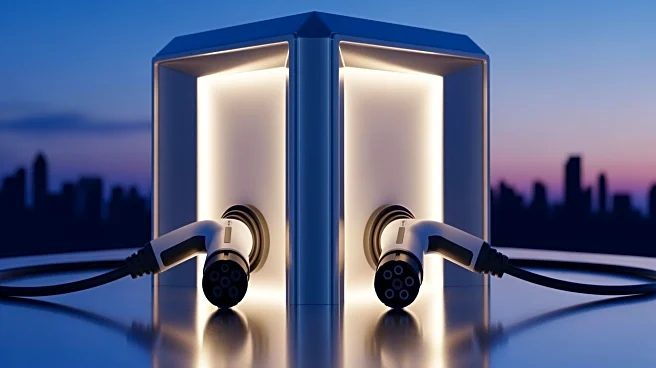What's Happening?
Electric vehicle (EV) charging tariffs in South Africa are structured as flat rates, with Rubicon and GridCars being key players in the market. As of August 2025, Rubicon eMSP customers pay R7.00 per kWh at DC charging stations, while GridCars eMSP customers pay R7.35
per kWh. AC charging stations offer a lower rate of R5.88 per kWh for both Rubicon and GridCars customers. The tariffs are set through agreements between charge point operators (CPOs) and e-mobility service providers (eMSPs), with variations depending on the provider.
Why It's Important?
Understanding EV charging tariffs is crucial for consumers to make informed decisions about where to charge their vehicles. The pricing structure reflects the cost of electricity, infrastructure, and operational expenses, impacting the overall cost of EV ownership. As the EV market grows, transparent and accessible information on charging costs can drive consumer adoption and support the transition to electric mobility.
What's Next?
As EV adoption increases, there is a need for more publicly available information on charging tariffs, similar to how fuel prices are displayed. This could enhance consumer awareness and facilitate the shift to electric vehicles. The collaboration between CPOs and eMSPs may evolve to offer more competitive pricing and improved services, potentially influencing tariff structures in other regions.
Beyond the Headlines
The development of EV charging infrastructure in South Africa is part of a broader global trend towards sustainable transportation solutions. The pricing strategies employed by Rubicon and GridCars highlight the economic considerations involved in building and maintaining charging networks. As the industry matures, there may be opportunities for innovation in tariff models, such as dynamic pricing based on demand.














